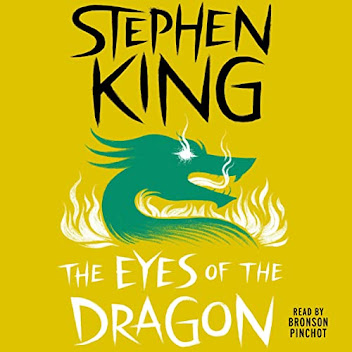THE YEAR of FEAR: MACHINE GUN KELLY and the MANHUNT THAT CHANGED the NATION (audiobook) by Joe Urschel
Published in 2015 by Macmillan Audio.
Read by Jeremy Bobb.
Duration: 9 hours, 4 minutes.
Unabridged.
In the early years of the Great Depression, kidnapping became a fairly common crime, especially in the Midwest. It was viewed by some as a safer alternative to bank robberies, especially since unsuspecting victims were often not armed.
The most famous kidnapping of the era was the Lindbergh baby case. It ended tragically, but did result in a Federal anti-kidnapping law. That law got its first test when George "Machine Gun Kelly" Barnes and his wife Kathryn planned the kidnapping of oil tycoon Charles F. Urschel (no relation to the author of The Year of Fear, but he admits to initially researching the topic due to the victim having the same last name as his). Urschel was taken from his home in Oklahoma to a farm in Texas. The moment they crossed the border, the kidnapping became a federal crime.
Machine Gun Kelly started out his career as a bootlegger, but his new wife Kathryn wanted more for him. She bought him his machine gun at a pawn shop and made him practice with it. She gave him his nickname and bragged to everyone that he was so adept with his machine gun that he could spell his own name out as he fired it. With that, a relative small-timer acquired a catchy name and a reputation that would eventually secure him a place in the public's imagination.
The Urschel kidnapping became the first major case of the fledgling FBI (it wasn't even called the FBI yet) and it's new director, J. Edgar Hoover. Hoover's men cracked the case fairly quickly (Urschel was a tremendous help - he worked very hard to remember everything that he could while he was kidnapped and even participated in a raid) and conducted a nation-wide manhunt for Machine Gun Kelly and his wife. When Kelly surrendered it was widely reported that he shouted, "Don't shoot, G-Men! Don't shoot, G-Men!" and forever gave FBI agents that nickname.
Kelly left another legacy as well. The federal government felt that some of their prisons were vulnerable to super-criminals like Kelly and Al Capone so they were moved to the newly built prison on Alcatraz Island near San Francisco that was designed to be escape-proof. Kelly was among the first prisoners moved there and spent 17 years there.
This audiobook was read by Jeremy Bobb. He did a very good job, including making special voices for some people, such as Machine Gun Kelly. However, the book was written in an uneven manner. The first half of the book includes a fascinating look at the crime wave that gripped the Midwest in those days. The tale of the Urschel kidnapping is told so well that it felt like I was listening to a crime novel more than a history. But, the story becomes tedious when re-telling the cross-country trips of Machine Gun Kelly and his wife Kathryn. Even worse, the story of the trial had too much cutting and pasting of trial transcripts. There was a lot of overblown grandstanding on the part of the prosecutor and it was often a challenge to listen to.
I rate this audiobook 3 stars out of 5. The first half is excellent. I trudged through the post-kidnapping part of the book just to see how it ended.
This book can be found on Amazon.com here: THE YEAR of FEAR: MACHINE GUN KELLY and the MANHUNT THAT CHANGED the NATION.
Read by Jeremy Bobb.
Duration: 9 hours, 4 minutes.
Unabridged.
In the early years of the Great Depression, kidnapping became a fairly common crime, especially in the Midwest. It was viewed by some as a safer alternative to bank robberies, especially since unsuspecting victims were often not armed.
The most famous kidnapping of the era was the Lindbergh baby case. It ended tragically, but did result in a Federal anti-kidnapping law. That law got its first test when George "Machine Gun Kelly" Barnes and his wife Kathryn planned the kidnapping of oil tycoon Charles F. Urschel (no relation to the author of The Year of Fear, but he admits to initially researching the topic due to the victim having the same last name as his). Urschel was taken from his home in Oklahoma to a farm in Texas. The moment they crossed the border, the kidnapping became a federal crime.
Machine Gun Kelly started out his career as a bootlegger, but his new wife Kathryn wanted more for him. She bought him his machine gun at a pawn shop and made him practice with it. She gave him his nickname and bragged to everyone that he was so adept with his machine gun that he could spell his own name out as he fired it. With that, a relative small-timer acquired a catchy name and a reputation that would eventually secure him a place in the public's imagination.
 | ||||
|
The Urschel kidnapping became the first major case of the fledgling FBI (it wasn't even called the FBI yet) and it's new director, J. Edgar Hoover. Hoover's men cracked the case fairly quickly (Urschel was a tremendous help - he worked very hard to remember everything that he could while he was kidnapped and even participated in a raid) and conducted a nation-wide manhunt for Machine Gun Kelly and his wife. When Kelly surrendered it was widely reported that he shouted, "Don't shoot, G-Men! Don't shoot, G-Men!" and forever gave FBI agents that nickname.
Kelly left another legacy as well. The federal government felt that some of their prisons were vulnerable to super-criminals like Kelly and Al Capone so they were moved to the newly built prison on Alcatraz Island near San Francisco that was designed to be escape-proof. Kelly was among the first prisoners moved there and spent 17 years there.
This audiobook was read by Jeremy Bobb. He did a very good job, including making special voices for some people, such as Machine Gun Kelly. However, the book was written in an uneven manner. The first half of the book includes a fascinating look at the crime wave that gripped the Midwest in those days. The tale of the Urschel kidnapping is told so well that it felt like I was listening to a crime novel more than a history. But, the story becomes tedious when re-telling the cross-country trips of Machine Gun Kelly and his wife Kathryn. Even worse, the story of the trial had too much cutting and pasting of trial transcripts. There was a lot of overblown grandstanding on the part of the prosecutor and it was often a challenge to listen to.
I rate this audiobook 3 stars out of 5. The first half is excellent. I trudged through the post-kidnapping part of the book just to see how it ended.
This book can be found on Amazon.com here: THE YEAR of FEAR: MACHINE GUN KELLY and the MANHUNT THAT CHANGED the NATION.











Comments
Post a Comment